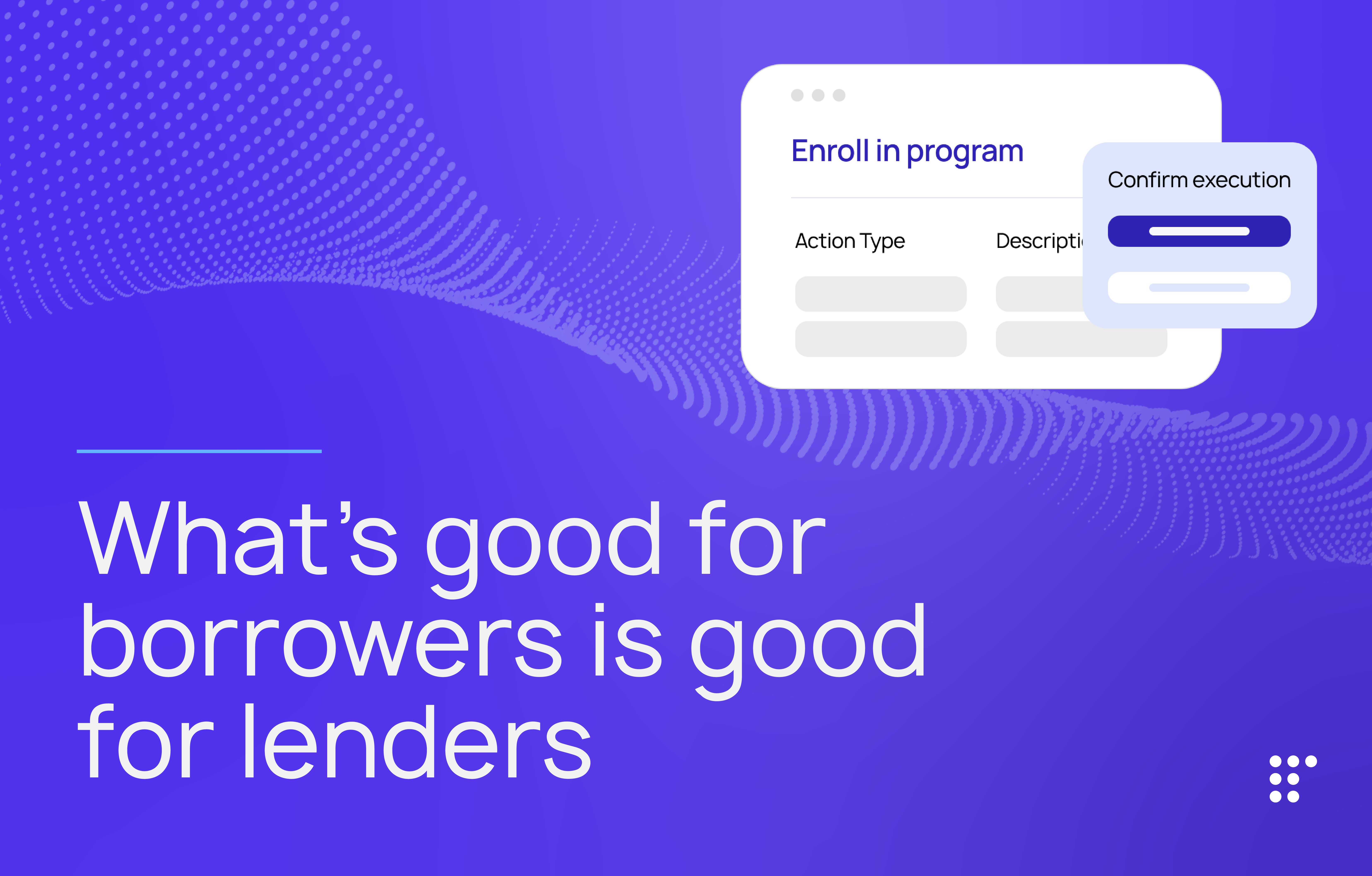Keeping Up with Compliance: October 2024
Welcome to another issue of LoanPro’s Compliance & Fintech Newsletter, bringing you news from across the industry with a focus on compliance. Expect new editions monthly. Subscribe to the newsletter to make sure you don’t miss an issue.
Compliance actions & changes in the industry
CFPB
- The CFPB has finalized the ‘open banking’ rule under Section 1033, which enhances consumer rights over personal financial data, requiring financial institutions to provide data access for free at the consumer's request, thereby promoting competition, better rates, and improved service in the financial sector.
- In something of a man-bites-dog story, the CFPB filed an amicus brief supporting financial institutions when a potential class-action lawsuit alleged that two banks had failed to provide proper TILA disclosures showing scheduled payoff making only minimum payments. The CFPB noted that since 2010, that requirement has only applied to credit cards, and not open-end accounts like the plaintiff’s. The judge, who had initially requested a comment from the CFPB, dismissed the case.
- The Financial Technology Association is suing the CFPB over their recent interpretive regulation that BNPL products fall under the scope of Regulation Z. The suit alleges that the CFPB’s regulation runs afoul of the Administrative Procedures Act (APA), both in the substantive effect of the rule and the rulemaking procedures they used to create it. (Regardless of the suit’s outcome, BPNL providers on LoanPro have a full suite of tools to ensure compliance.)
- The CFPB has fined Apple $25 million and Goldman Sachs at least $64.8 million for mishandling transaction disputes and misleading Apple Card users about interest-free payment options, impacting hundreds of thousands of customers.
Regulatory
- After an Illinois law forbade credit and debit interchange fees on tips and sales tax, a group of banks filed a lawsuit. The Office of the Comptroller of the Currency (OCC) filed an amicus brief siding with the banks, calling the law “ill-conceived, highly unusual, and largely unworkable state law that threatens to fragment and disrupt this efficient and effective system”. A hearing is scheduled for October 30.
- California is regulating earned wage access (EWA) providers for the first time, following the California Consumer Financial Protection Law, amid growing scrutiny over these services that allow early wage access.
- The FTC announced a final “click-to-cancel” rule that requires companies selling subscription-based products to make it easier to end them.
Fintech news
- On the heels of the Department of Justice’s antitrust suit against Visa, a private class-action lawsuit has been filed by merchants alleging Visa’s market dominance has had a detrimental effect on them. The antitrust allegations of both lawsuits have been contested both by Visa and other commentators.
- The US Treasury’s expanded use of machine learning AI prevented over $4 billion in fraud this year.
- Through a Georgia state law, payment processor Fiserv received a special banking charter, allowing them to directly access card networks, rather than through a bank partner.
- Mastercard is launching a new open banking tool—Connect Plus. Connect Plus will empower consumers to control the sharing of their financial data by allowing them to manage permissions, enhancing transparency and trust in the digital economy.
- Klarna is expanding its buy now, pay later services with a new Apple storefront, while Apple transitions from its own BNPL option to partnering with competitor Affirm.
- Stripe is in advanced talks to acquire stablecoin platform Bridge for $1 billion, which would significantly increase Bridge’s valuation from $200 million and mark Stripe’s largest acquisition to date, reflecting the company’s strong focus on cryptocurrency initiatives.
- Shopify is centralizing its financial services into Shopify Finance, combining lending, banking, bill pay, tax management, and financial insights to enhance user access to funds and streamline financial operations within its ecommerce platform.
Insights
October saw two compliance stories where regulators filed briefs supporting lenders and card providers—the CFPB brief supporting lenders in a class-action suit over TILA disclosures, and the OCC brief on a proposed Illinois law that would prohibit interchange fees on tax and tips.
What’s more, the final ‘open banking’ rule under 1033 has been met with some positive response within the industry: Alex Johnson explored the benefits of open banking, and Simon Taylor talked about how merchants like Walmart will now be in a better position to launch pay-by-bank products.
While commentators can often oversimplify regulation into simple narratives of good consumers versus bad corporations or good companies versus bad regulators, the situation seems more nuanced. Regulators don’t have a unilateral mandate to make life difficult for credit providers, and they also acknowledge that overregulation can put such a burden on companies that they have to either pivot away or go out of business, resulting in fewer options for consumers.
And next week’s elections will bring new officials into policymaking positions not only in the White House or Congress, but also in state-level positions across the country. While most political discourse has focused on the presidential election, state legislators in down ballot races could make significant regulatory changes that impact credit providers across the country, like those in Illinois, pushing for interchange-free taxes and tips, or those in Georgia, who are issuing special bank charters.
Compliance feature spotlight
While the 1033 rule won’t go into effect into 2026 (or later for smaller financial institutions), credit providers should start thinking about how open banking will affect them in the long-term.
The rule itself might simply say that creditors and account-holding institutions need to make data more accessible to authorized third-parties, but the downstream consequence (stated in the CFPB’s own press release) is to “empower people to more easily fire financial companies that provide bad service”. Open banking will make it easier than ever for customers to switch providers; providers who want to retain their customers then need to ensure they foster customer loyalty with a consistently high-quality experience.
LoanPro has built out a full suite of solutions to delight customers and build long-term relationships, from deep personalization in card products to high-touch experiences in credit builder products.
To learn more, reach out to us. We’d love to show you firsthand how LoanPro can enhance both compliance and your customers’ experience.
Thanks for reading this month's edition of Keeping up with Compliance! Don't forget to subscribe, and keep your eyes peeled for our November issue.




